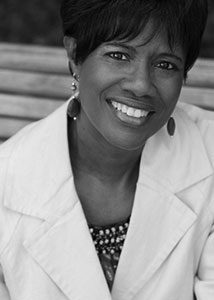Joyful Jubilee
This fall we present a very special collaboration between the SVC and acclaimed State College-based choral ensemble, Essence 2, Ltd., a community performance group founded and directed by professor of music/music education at Penn State College, Anthony T. Leach.
Sunday, October 29 at 3pm
Pre-concert talk with Dr. Gary Boerckel at 2:15pm
Weis Center for the Performing Arts, Bucknell University, Lewisburg – view google map
Special Guest Soloists:
Rosephanye Powell
Sponsors: Woodcock Foundation for the Appreciation of the Arts, Inc.
Co-sponsor: Anne and Tom Gates
Underwriters: The John Family Foundation
Spirituals
After Fort Sumter was bombarded and southern states seceded from the union, Fort Monroe in Hampton, Virginia at the mouth of the Chesapeake Bay remained under federal control. Escaped slaves took shelter there and, when their masters appeared to demand their return, the fort’s commander refused on the novel assertion that they were “contraband of war.” As the escapees grew more numerous, missionaries from the north brought supplies to the fort where they were moved by the singing of the former slaves. Go Down, Moses, with its anti-slavery refrain Let my people go, was the first of contrabands’ songs–later known as spirituals–to be notated and published.
Three of the works on the Susquehanna Valley Chorale’s October program are traditional spirituals. Walk Together Children was arranged by Anthony T. Leach, associate professor of music/music education at The Pennsylvania State University. Mr. Leach points out that “…many spiritual texts use coded symbolic language to reference images of freedom as well as to describe escape routes.
Gospel
During the years following the end of the Civil War, the charismatic evangelist Dwight L. Moody launched a series of revival meetings that combined the “good news” of the gospels with hymns that sounded like popular music with religious texts. By the turn of the century, gospel songs were regularly heard in rural camp meetings and large urban evangelical churches, although more liturgically-oriented denominations generally avoided them (or banished them to the Sunday School). Fanny Crosby was one of the best-known writers of gospel hymn lyrics. Her thousands of verses include To God Be the Glory and Blessed Assurance. Her musical counterpart was Charles H. Gabriel, the composer of His Eye is On the Sparrow [I Sing Because I’m Happy], He Leadeth Me, and Brighten the Corner Where You Are, and countless others. Robert H. Lowry was a Philadelphia native, but he spent many years in Lewisburg as a student at the University at Lewisburg [now Bucknell University] where he was later professor and chancellor. Lowry wrote both the words and the music for How Can I Keep from Singing? and Shall we Gather at the River?
In the 1930s, a blues-infused gospel singing style became popular in many African-American churches, beginning at Chicago’s Ebenezer Baptist where the director of music was Thomas A. Dorsey, later known as the “father of black gospel music.” As a young man, “Georgia Tom” Dorsey was a well-known jazz and blues pianist. Later, he devoted himself to music for the church. His hymns include Precious Lord, Take My Hand and Peace in the Valley and Dorsey played a major role in the careers of Mahalia Jackson and Sallie Martin. Rollo Dilworth is professor of choral music education at Temple University in Philadelphia. His arrangement of How Can I Keep from Singing? is one of more than 150 original works and arrangements he has published. Jeffrey L. Ames is Director of Choral Activities at Belmont University in Nashville, Tennessee. He published his original gospel song Let Everything That Hath Breath in 1997.
Meet the Soloists
 Special guest composer and singer Rosephanye Powell will be featured as the narrator for her own original work “The Cry of Jeremiah” and soprano soloist in the traditional spiritual “Anchored in de Lord.”
Special guest composer and singer Rosephanye Powell will be featured as the narrator for her own original work “The Cry of Jeremiah” and soprano soloist in the traditional spiritual “Anchored in de Lord.”
DR. ROSEPHANYE DUNN POWELL has been hailed as one of America’s premier women composers of choral music. She has an impressive catalogue of works published by some of the nation’s leading publishers.
Dr. Powell is commissioned yearly to compose for university choruses, professional, community and church choirs, as well as secondary school choruses. Dr. Powell’s works have been conducted and premiered by nationally-renowned choral conductors. Her work has been auctioned by Chorus America and her compositions are in great demand at choral festivals around the country, frequently appearing on the regional and national conventions of the American Choral Directors Association, as well as Honor Choir festivals.
Dr. Powell’s compositions include sacred and secular works for mixed chorus, women’s chorus, men’s chorus, and children’s voices. Dr. Powell serves as a Charles Barkley Endowed Professor and Professor of Voice at Auburn University. She holds degrees from The Florida State University (D.M. in vocal performance, University Fellow), Westminster Choir College (M.M. in vocal performance and pedagogy, with distinction), and Alabama State University (B.M.E., summa cum laude).
Recent commission (or say Her composition) include: The Cry of Jeremiah, (which will be performed by the SVC and Essense II,) is a four-movement sacred work for narrator, chorus, organ and orchestra, commissioned by the American Guild of Organists, premiered at the Lincoln Center, NY (May 2014)
An accomplished singer and voice professor, Dr. Powell’s research has focused on the art of the African-American spiritual, the art songs of William Grant Still (dean of African-American composers), and voice care concerns for voice professionals (specifically, music educators, choral directors, and choral singers). She travels the country and internationally presenting lectures, song demonstrations, and serving as a workshop clinician, conductor, and adjudicator for solo vocal competitions/auditions, honor choirs, choral workshops and festivals. Recent commitments include Melbourne International Singers Festival (AUS); the New York State School Music Association (Rochester).
In 2009, Dr. Powell received the “Living Legend Award” presented by California State University African Diaspora Sacred Music Festival in Los Angeles. She was listed in the first edition of the international publication Who Is Who in Choral Music. And, she has been included in Who’s Who Among America’s Teachers and Outstanding Young Women in America in recent years. Dr. Powell is a member of the American Society of Composers, Authors, and Publishers (ASCAP), the American Choral Directors Association (ACDA), the College Music Society (CMS), the National Association of Teachers of Singing (NATS) and the Music Educators National Conference (MENC).


